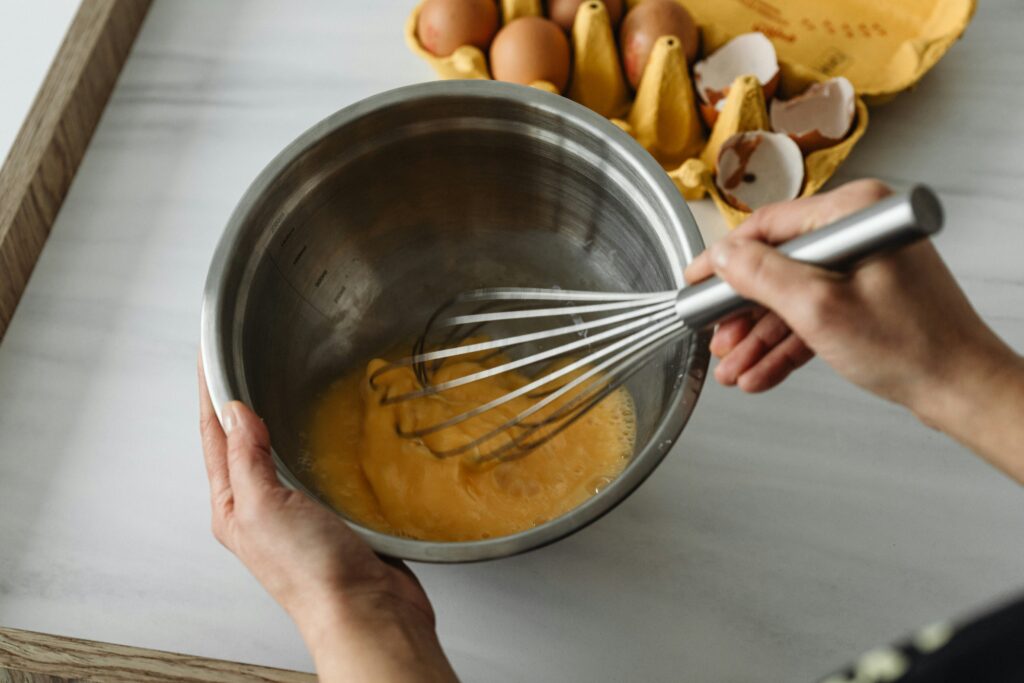Why food blogs still matter (even in the age of ChatGPT)

At a recent networking event, someone who is really deep in the AI space asked me, “I’ve started using ChatGPT for recipes and meal planning, so is there any reason to visit a food blog anymore?”
Off the top of my head, I said it’s the photos and videos that make the biggest difference because they help you know that you’re making the recipe correctly. I’ve been thinking about her comment ever since. ChatGPT is quick, flexible, and helpful when you’re trying to pull dinner together when you have a lot of criteria (using up ingredients in your pantry, your family preferences, keeping it within budget and time constraints, etc).
But when it comes to actually making a recipe you can trust, food blogs still offer things that AI can’t replicate.
Here are five good reasons to keep going to a creator’s site:
1. Visual help
Food is visual. Most food blogs include photos of the key steps or a video to follow along with. That means you can check how your dough should look, whether your sauce has thickened enough, or if your onions are caramelized. It’s practical and reassuring, especially when you’re learning something new.
2. Trust
You get to know and trust the real person behind the recipe. They share their personal experiences, tips, and tweaks. You can read their notes, browse comments from other readers, and ask questions if something’s unclear. That connection builds your confidence in the recipe.
3. It’s been tested
Good food bloggers test their recipes until they work consistently. (J. Kenji López-Alt peeled 1,000 eggs to learn what worked best!!) And then readers will leave reviews and star ratings that help you decide whether or not to give the recipe a go.
Making a recipe is an investment of your time, money, and resources. I don’t want to waste food or money on things that may or may not work because of the recipe itself. (User-error is a whole other thing!)
If you’re a seasoned chef, you’ll spot mistakes and problems in an AI-generated recipe because you have experience and have learned the hard way about what works and what doesn’t. Other people will not. I’m reminded of a story about my grandfather, who didn’t know how to boil an egg. He put one in an egg cup and set it directly on the element!
How often have you asked ChatGPT to double-check things because they don’t seem quite right, and it turns out that there have been major errors made?
4. To support creators
Visiting a creator’s site helps them earn a living and keep doing what they love doing. Behind every food blog is someone putting real thought, care, hard work, and time into what they share.
5. Context
Blogs usually include helpful extras like storage tips, ingredient swaps, or serving ideas. Sometimes they’ll share the story behind the dish or how it fits into a family tradition. It’s about more than just ingredients and instructions. Right now, I’m doing a lot of make-ahead meals, and I’m paying attention to those tips on recipe sites.
So, where does ChatGPT fit in?
I find ChatGPT excellent when I’m in the idea generation phase. You can ask for meal suggestions that meet very specific needs, like: “quick gluten-free family dinner with no tomatoes or pasta.” Or plan out a whole week of dinners based on seasonal ingredients, using a mix of cuisines and protein types. I meal plan for the whole week where I have a pattern: fish, vegetarian, vegan, pizza, international cuisine (e.g., Mexican, Japanese, Indian, Thai, Mediterranean), slow cooker, and leftovers. It’s fast, flexible, and good at giving lots of ideas from across the internet.
Once I’ve narrowed my options, I then head to a food blog to find a version I can trust.
It’s not all or nothing — the two can work really well together. Food blogs offer something extra: a sense of trust, personality, and care that you don’t get from AI alone.
If you’re a food creator, this is a great time to focus on what makes your content special. Personality, helpful tips, lived experience, and real testing matter more than ever.
